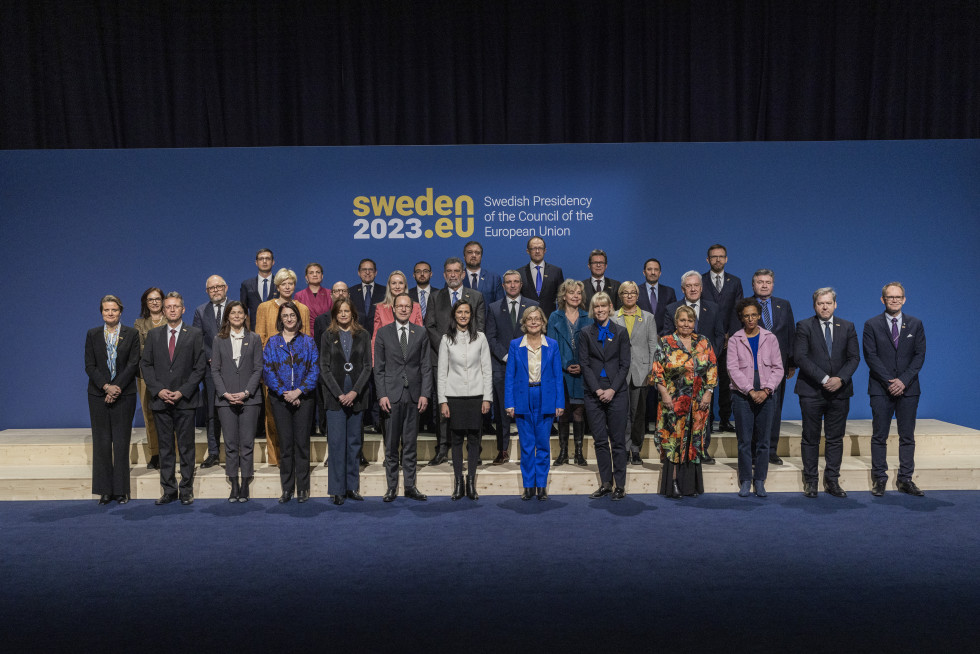Opportunities, shortcomings and challenges of open science
Sweden, which holds the presidency of the Council of the European Union, put research infrastructures and open science at the centre of an informal meeting attended by ministers for research, held in Stockholm on 8 February 2023, following up on the joint priorities of the France, Czech Republic and Sweden trio.
In the area of research infrastructures, the Swedish presidency proposed that ministers focus on the issue of data-driven research infrastructures as a basis for enabling and facilitating both the research process and the transfer into practice of the knowledge generated. In addition to the necessary investment in data capacity, the challenge is to create a system where research data can be found, accessed, reused and made interoperable between different systems, the so-called Findable, Accessible, Interoperable and Reusable (FAIR) principle. Coordination between EU Member States, the European Commission and stakeholders in this area is mainly through the European Strategy Forum on Research Infrastructures (ESFRI) and the European Open Science Cloud (EOSC).
Among the framework conditions to be achieved for the realisation of open science, the most frequently mentioned by EU Member States were:
- reforming the system of research assessment to foster a research culture of open science;
- creating incentives for data sharing;
- integrating research infrastructures, including data infrastructures, into the European Open Science Cloud and coordinating EU Member States through the Cloud;
- training researchers to implement the FAIR principle in their work;
- developing appropriate data management plans as well as a framework (indicators) to monitor success in achieving these objectives.
On behalf of Slovenia, Dr Papič reported on the success of the approach to planning research infrastructures (using the VEGA supercomputer as an example), which had involved all relevant stakeholders and thus enabled almost one hundred per cent of its use to be exploited. It is also used by business. The minister also outlined Slovenia's plan to set up two big data centres using national funds and Recovery and Resilience Plan funds, stressing the need for a pan-European approach (via the European Open Science Cloud) for connected and compatible data infrastructures.
In the field of open science, the following challenges were highlighted by the ministers responsible for research:
- the rising cost of open access, which requires payment for publications as well as for access to them;
- a well-established scientific culture of publishing in prestigious journals, as a result of a history of rewarding such publications;
- the protection of intellectual property rights in the context of the practice of transferring researchers’ copyrights to the publishers who publish their articles; and
- the reluctance of publishers that have a monopoly to change their current business model.
Among the key actions for the transition to full open access, the majority of ministers proposed:
- joint negotiations with major publishers of scientific publications that can overcome their resistance to changing the current business model;
- reforming the system for evaluating research, researchers and research organisations, giving priority to the quality of scientific publications over their quantity;
- changes to the regulatory framework at all levels to ensure that researchers’ copyrights are retained after publication, thus preserving publicly funded and publicly owned research results;
- limiting the costs that publishers can charge for processing and publishing articles;
- continuing efforts to establish alternative (public) repositories of scientific publications and data.
Dr Papič reported on the central role of open science in the renewed Slovenian legislative and strategic framework for research and innovation and highlighted the issue of managing the transition to open science as a key challenge. He saw the common approach of all EU Member States and their unity as playing a key role, both in negotiations with publishers and with global partners. He suggests that public policy makers can create an environment that rewards researchers’ open access publishing (the Diamond Model), yet warned that this will only be appropriate for future research publications and for researchers at the beginning of their careers, and not for all previously published knowledge, for which the material rights remain in most cases in the hands of the publishers.
As a result of the debate, the Swedish presidency will prepare a proposal of the conclusions on open science publishing, which will soon be presented to the Council of the European Union in the Working Party on Research.


